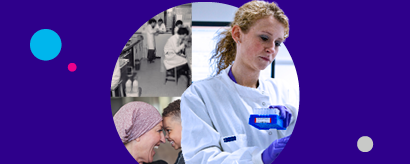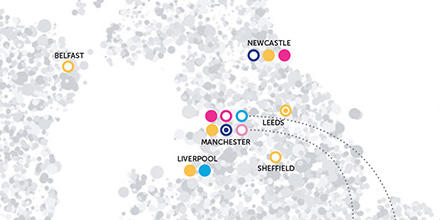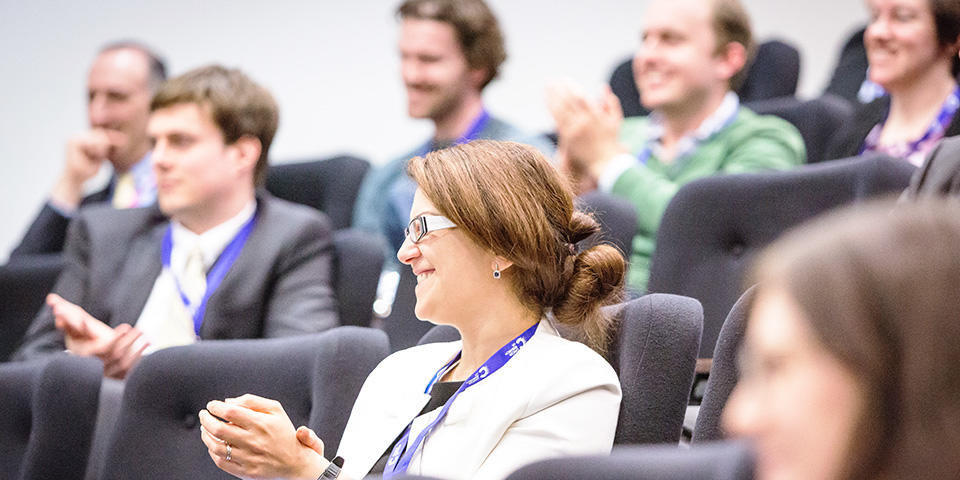Together we are beating cancer
- Cancer types
- Breast cancer
- Bowel cancer
- Lung cancer
- Prostate cancer
- Cancers in general
- Clinical trials
- Causes of cancer
- Coping with cancer
- Managing symptoms and side effects
- Mental health and cancer
- Money and travel
- Death and dying
- Cancer Chat forum
- Health Professionals
- Cancer Statistics
- Cancer Screening
- Learning and Support
- NICE suspected cancer referral guidelines
- Make a donation
- By cancer type
- Leave a legacy gift
- Donate in Memory
- Find an event
- Race for Life
- Charity runs
- Charity walks
- Search events
- Relay for Life
- Volunteer in our shops
- Help at an event
- Help us raise money
- Campaign for us
- Do your own fundraising
- Fundraising ideas
- Get a fundraising pack
- Return fundraising money
- Fundraise by cancer type
- Set up a Cancer Research UK Giving Page
- Find a shop or superstore
- Become a partner
- Cancer Research UK for Children & Young People
- Our Play Your Part campaign
- Brain tumours
- Skin cancer
- All cancer types
- By cancer topic
- New treatments
- Cancer biology
- Cancer drugs
- All cancer subjects
- All locations
- By Researcher
- Professor Duncan Baird
- Professor Fran Balkwill
- Professor Andrew Biankin
- See all researchers
- Our achievements timeline
- Our research strategy
- Involving animals in research
- Research opportunities
- For discovery researchers
- For clinical researchers
- For population researchers
- In drug discovery & development
- In early detection & diagnosis
- For students & postdocs
- Our funding schemes
- Career Development Fellowship
- Discovery Programme Awards
- Clinical Trial Award
- Biology to Prevention Award
- View all schemes and deadlines
- Applying for funding
- Start your application online
- How to make a successful applicant
- Funding committees
- Successful applicant case studies
- How we deliver research
- Our research infrastructure
- Events and conferences
- Our research partnerships
- Facts & figures about our funding
- Develop your research career
- Recently funded awards
- Manage your research grant
- Notify us of new publications
- Find a shop
- Volunteer in a shop
- Donate goods to a shop
- Our superstores
- Shop online
- Wedding favours
- Cancer Care
- Flower Shop
- Our eBay store
- Shoes and boots
- Bags and purses
- We beat cancer
- We fundraise
- We develop policy
- Our global role
- Our organisation
- Our strategy
- Our Trustees
- CEO and Executive Board
- How we spend your money
- Early careers
- Your development

Cancer News
- For Researchers
- For Supporters
- Press office
- Publications
- Update your contact preferences
- About cancer
- Get involved
- Our research
- Funding for researchers
The latest news, analysis and opinion from Cancer Research UK
- Science & Technology
- Health & Medicine
- Personal Stories
- Policy & Insight
- Charity News
- Health & Medicine
- Science & Technology
Getting ahead of cancer: our 2024 research highlights

17 December 2024
“Timing is everything when you’re treating cancer,” Dr Iain Foulkes, our executive director of research and innovation, explained earlier this year. If you wanted a quick way to tell the story of Cancer Research UK in 2024, you could say we’ve taken that idea and run with it.
Foulkes was talking about the final results of the INTERLACE trial, where our researchers made the biggest improvement to cervical cancer treatment in decades. The trial involved starting chemotherapy six weeks earlier, with an extra course of drugs before surgery. That simple tweak, which doesn’t involve any new treatments, almost halves the risk that people with cervical cancer will die from the disease .
Treating cancer is a delicate balance, and reordering chemotherapy won’t always be the best option, but the finding points to a wider truth: in most cases, the earlier we’re able to intervene, the more effective our interventions will be.
That’s why, throughout 2024, we’ve put such a focus on how and when we deal with cancer – on turning it from a disease doctors diagnose and treat to one we seek out and stop, as well as addressing the issues that cause it in the first place.
Want to know more? Here’s our round up of some of the year’s biggest and most important stories.
The rise of cancer prevention vaccines
Unlike the vaccines we’re used to in other parts of healthcare, most cancer vaccines are treatments, rather than prevention tools. They’re usually given to people to help their immune systems recognise and fight cancer cells after those cells have already appeared.
This year, we jumped ahead, launching three cancer prevention vaccine projects, primarily at the University of Oxford. Each one is designed to help people’s immune systems recognise the early signs of specific types of cancer.
Doctors could use these vaccines to protect people with a high risk of developing certain cancers long before those cancers start.
“Getting the immune system to recognise and attack cancer is one of the biggest challenges in cancer research today,” explained Professor Tim Elliot, research lead for our lung cancer vaccine project, LungVax, in March. “If we can replicate the kind of success seen in trials during the [COVID-19] pandemic, we could save the lives of tens of thousands of people every year in the UK alone.”
LungVax would be most suitable for people who currently or have previously smoked.
The second project, OvarianVax , could help women with BRCA1 and BRCA2 gene variants that make them more susceptible to ovarian cancer.
The third, LynchVax , is designed for people with Lynch syndrome, which increases the risk of bowel cancer, womb cancer and some other cancer types.
There should be many more ‘CancerVax’ projects to come.
We hope our research will lay the early foundations to potentially prevent these [cancers] through vaccination, removing the fear of cancer from people whose chances of developing it in their lifetime are far higher.
The first smokefree generation since the 16 th century
LungVax could herald a new way of preventing lung cancer, but we already know what’s most effective. With tobacco being the biggest preventable cause of cancer and death in the UK, it’s crucial to focus on stopping people from using it in the first place.
The Tobacco and Vapes Bill, which was reintroduced to Parliament this year, can help to do just that. If it becomes law, it will ensure that people born on or after 1 January 2009 can never legally be sold tobacco in their lifetime, helping to create the first ever smokefree generation.
All year, our Smokefree UK supporters and campaigners have been helping show politicians just why that’s so important .
Largely thanks to their work, the second edition of the Bill cleared its second big hurdle in November, with MPs voting 415 to 47 in favour . That’s an even bigger majority than the original Bill received before its progress was halted by July’s general election.
There’s more work to do, but, clearly, the tide is turning against tobacco. We’re closer than ever to ending cancers caused by smoking across the UK.
It’s hard to put into words just how significant this could be. Smoking causes 160 cancer cases every day across the country. Cigarettes are the only consumer item that, if used as intended, will ultimately kill most of the people who keep buying them.
We’re proud to say that in 2024, we took huge strides towards finally stopping that harm and creating what could be the first smokefree generation since the 16th century.
Find out more about the Bill, including its measures to extend smokefree places and introduce a licensing scheme for tobacco and vapes, here .
Catching oesophageal cancer with the capsule sponge test
In the early 2000s, Professor Rebecca Fitzgerald began imagining a sort of gullet (or food pipe ) “ bottle brush ” that could make diagnosing oesophageal cancer quick, simple and cheap . Over time, her idea expanded into the capsule sponge test – a pill on a thread that doctors and nurses can use to collect oesophageal cells w ithout the difficulty or discomfort of an endoscopy (a camera down the throat) .
Our BEST3 trial has already shown that the capsule sponge test is 10 times more effective at finding oesophageal cancer than standard GP care. Now we’re going to see if we can use it to revolutionise our approach to diagnosing the disease. Over the coming years, the 120,000+ person BEST4 study will show whether the capsule sponge can support a screening programme to find Barrett’s oesophagus, a condition which can lead to oesophageal cancer, in people with chronic heartburn.
BEST4 is happening in two parts. The first, which launched in January, is testing whether the capsule sponge test can replace endoscopies as a way of monitoring people with Barrett’s oesophagus for early signs of oesophageal cancer. The second part, focusing on the heartburn screening programme , started in November.
The NHS is inviting eligible people to take part in the trial by text message. For everyone else, keep an eye out for the specialist capsule sponge screening vans that might soon be delivering the tests near you.
More big news in early diagnosis
BEST4 was far from the only one of our big early diagnosis projects to make headlines this year.
In summer, t he results of the BARCODE study, which we helped fund, showed that a DNA saliva test helps identify men at high risk of prostate cancer . It could be the first reliable way of screening for the disease, overcoming the limitations of prostate-specific antigen (PSA) blood tests, which can lead to more harms than benefits.
We’ve also been looking at ways of making the HPV tests used for cervical cancer screening work for more women and people with a cervix. Currently, physical and mental barriers keep 1 in 3 from regularly attending their cervical screening appointments, but the YouScreen trial showed that offering self-sampling could help one million extra people take part .
Our funding helped YouScreen test a technique using a vaginal swab, which is less invasive than current screening methods but still means sending samples to labs. With Papcup , developed by Sânziana Foia, we’ve also been backing a more innovative approach. Foia’s invention is designed to spot the high-risk HPV infections in menstrual blood within minutes, without any swab at all.
And then there’s the ‘lollipop’ test for mouth cancer , which brings many of the same benefits as the capsule sponge. As well as replacing invasive biopsies, it could also help doctors diagnose oral cancers earlier, when treatment is more likely to be successful. The hydrogel material our scientists in Birmingham developed for the test can be flavoured, too – or converted to work with urine (though typically not at the same time).
Powering world-class research for 2025 and beyond
The progress we’ve made in 2024 will help save lives and stop cancers for generations to come.
And yet, as 2024 turns to 2025, it’s important to remember that each year is just a small stretch of a long journey. Just as a car needs fuel to reach its destination, clinical research needs funding to transform bright ideas into brighter and healthier futures.
Our supporters are the reason we’ve been able to fund the projects above. And, as well as powering our work today, donations mean we can make the sustainable commitments that will lead to more lifesaving advances tomorrow.
In 2024, the public’s generosity meant we were able to award £173m to our Cambridge Institute (home to the capsule sponge, among many other breakthroughs). It’s the largest single grant we have ever awarded outside of London.
With the new funding, our world-leading researchers at the University of Cambridge will keep unlocking new insights into how cancers develop, grow and spread. They’ll also be able to focus even more closely on harnessing the immune system to combat the disease.
Meanwhile, across the UK, we’ve been able to commit £58.7m to help train more clinician scientists , specialist doctors with the expertise to connect early-stage research to changes that can help patients.
And, in March, Cancer Grand Challenges , the funding initiative we co-founded with the National Cancer Institute in the US, announced its largest funding round yet, with five research teams receiving up to £20m each .
Two of those teams will be focusing on developing new treatments specifically for children’s and young people’s cancers. The C-Further consortium, a pioneering international initiative we launched with the scientific charity LifeArc in September, is set up to do the same.
So, it’s clear we’re set up for some incredible advances over the coming years, too. We look forward to telling you all about them.
Thank you to all our supporters. You make our work possible.
A Merry Christmas and a Happy New Year from Cancer Research UK.
Sadaf and Tim
Tell us what you think
Leave a reply cancel reply.
Your email address will not be published. Required fields are marked *
Save my name, email, and website in this browser for the next time I comment.
Read our comment policy .
Highlighted content
New oesophageal cancer screening trial begins testing the capsule sponge, world-first urine test for lung cancer picks out 'zombie' cells, bowel cancer rates rising in younger adults around the world, what role can nhs scientists play in delivering the genomic revolution, "there really is hope after cancer”: four people share their experience of lung cancer, ‘courage looks like me’ – joseph coelho composes poem inspired by the words of children affected by cancer, mps vote in favour of the tobacco and vapes bill at its second reading, could a chemical found in red grapes prevent bowel cancer, 12 ways we’ve influenced progress in lung cancer , more like this, 2023 roundup: 5 of our most important cancer research stories of the year, our most important cancer research stories of 2022, 6 of the biggest good news cancer stories of 2021, related topics.
- Cancer Research UK-funded research
- Fundraising
- Cancer prevention policy
- Diagnosing cancer
- Signs and symptoms
- Ovarian cancer
- Early detection

Sign up to our newsletter
Together we are beating cancer
About cancer
Cancer types
- Breast cancer
- Bowel cancer
- Lung cancer
- Prostate cancer
Cancers in general
- Clinical trials
Causes of cancer
Coping with cancer
- Managing symptoms and side effects
- Mental health and cancer
- Money and travel
- Death and dying
- Cancer Chat forum
Health Professionals
- Cancer Statistics
- Cancer Screening
- Learning and Support
- NICE suspected cancer referral guidelines
Get involved
- Make a donation
By cancer type
- Leave a legacy gift
- Donate in Memory
Find an event
- Race for Life
- Charity runs
- Charity walks
- Search events
- Relay For Life
- Volunteer in our shops
- Help at an event
- Help us raise money
- Campaign for us
Do your own fundraising
- Fundraising ideas
- Get a fundraising pack
- Return fundraising money
- Fundraise by cancer type
- Set up a Cancer Research UK Giving Page
- Find a shop or superstore
- Become a partner
- Cancer Research UK for Children & Young People
- Our We Are campaign
Our research
- Brain tumours
- Skin cancer
- All cancer types
By cancer topic
- New treatments
- Cancer biology
- Cancer drugs
- All cancer subjects
- All locations
- Our achievements timeline
Our research strategy
- Involving animals in research
Funding for researchers
Research opportunities
- For discovery researchers
- For clinical researchers
- For population researchers
- In drug discovery & development
- In early detection & diagnosis
- For students & postdocs
Our funding schemes
- Career Development Fellowship
- Discovery Programme Awards
- Clinical Trial Award
- Biology to Prevention Award
- View all schemes and deadlines
Applying for funding
- Start your application online
- How to make a successful application
- Funding committees
- Successful applicant case studies
How we deliver research
Our research infrastructure.
- Events and conferences
Our research partnerships
- Facts & figures about our funding
- Patient involvement toolkit for researchers
- Develop your research career
- Recently funded awards
- Manage your research grant
- Notify us of new publications
Find a shop
- Volunteer in a shop
- Donate goods to a shop
- Our superstores
Shop online
- Wedding favours
- Cancer Care
- Flower Shop
Our eBay store
- Shoes and boots
- Bags and purses
- We beat cancer
- We fundraise
- We develop policy
- Our global role
Our organisation
- Our strategy
- Our Trustees
- CEO and Executive Board
- How we spend your money
- Early careers
Cancer news
- Cancer News
- For Researchers
- For Supporters
- Press office
- Publications
- Update your contact preferences
ABOUT CANCER
GET INVOLVED
NEWS & RESOURCES
FUNDING & RESEARCH
You are here

Cancer Research UK is the largest charitable funder of cancer research in the world, funding around 50% of all publicly-funded cancer research here in the UK.
Today we invest nearly £400 million annually into cancer research through research funding, conferences, initiatives, resources, and a UK-wide network of research infrastructure across discovery, clinical, prevention and detection research, contributing to the UK's outstanding environment for cancer research.
We're at the forefront of the global fight against cancer, working with commercial and non-commercial research partners across the world to achieve our ambitious vision for a better future.
on new and ongoing research 2023/24
Institutions around the uk, scientists and clinicians in our network.
Explore more facts and figures about our research funding

We invest in creative people who can deliver research of the highest quality. Our strategy shapes how we'll discover more about the mechanisms of how cancer develops and progresses to unlock new and better ways to prevent, detect and treat it.
How we fund research

Peer review forms the basis of our funding decisions. Depending on the funding you’ve applied for, this can include assessment by an expert review panel, or an interview. Final funding decisions are made by our funding committees.

Infrastructure plays a crucial role in our dynamic and responsive research environment. Our state-of-the-art facilities provide capabilities across the full breadth of cancer research and the translational pipeline, and support close partnerships with universities and the NHS.
Our research institutes provide an exceptional environment for discovery research. Our translational centres drive research toward patient benefit, alongside our network of clinical trials units, Cancer Research Horizons' drug discovery sites, and our Centre for Drug Development.
Our commitment to involving people affected by cancer in our work
Our statement of intent for patient and public involvement outlines how we will work with people affected by cancer to guide, influence and shape projects as they develop to increase our understanding of cancer. We will also seek input from members of the public, who may not have previous experience of cancer, particularly for our research on cancer epidemiology, prevention, early detection and diagnosis.
Each year, we work with more than 90 patient and public representatives across our research funding activities. These representatives bring invaluable insights and experience to our research activities.
As of 2024:
8 support our Clinical Research Committee and associated funding panels as full voting members.
26 sit on our joint Early Detection and Prevention and Population Patient and Public Involvement panel.
2 lay public members sit on Research Careers Committee/Panels, reviewing broader skills/experience e.g. leadership and management.
14 (including 8 from the UK) sit on the International Alliance for Cancer Early Detection patient and public advocacy group.
12 lay members from the UK and USA support the CGC Advocacy Panel
2 patient representatives sit on the ECMC Paediatric Network Strategy Group.
2 sit on the ECMC Advisory Board
2 patient representatives are also involved with the ECMC Data Integration theme
1 sits on the Experimental Cancer Trial Finder Governance Group
9 patient and public representatives sit on the Cancer Data Patient & Public Community Steering Group to support the work of the Research Data Strategy
12 patient and public representatives sit on the Data Resource Review Group
8 patient representatives sit on the Commercial Data Partnerships Panel
8 sit on the CDD Patient Involvement Panel
We also work closely with our patient involvement team to ensure that patients and the public have the opportunity to contribute to cross-cutting initiatives and ad-hoc reviews.
Research events and conferences

We know the importance of collaboration and networking, and we host a variety of events and conferences every year to help accelerate research. From our flagship international conferences in priority fields such as early detection, precision medicine and hard-to-treat cancers, to exclusive meetings for the students and funded researchers in our community, our events foster multidisciplinary and international collaboration.

We partner with industry, charities, not-for-profits, and government funding agencies both in the UK and around the world to build mutually beneficial partnerships that support our own research objectives and those of our partners. We’re open to exploring new models of partnering across all areas of our research activity, at every stage of the research pipeline, and across all cancer types.
Our research policies
Our policies govern how we fund research, and help to ensure that we're funding the highest quality research.

IMAGES
COMMENTS
Cancer Research UK is a registered charity in England and Wales (1089464), Scotland (SC041666), the Isle of Man (1103) and Jersey (247). A company limited by guarantee. Registered company in England and Wales (4325234) and the Isle of Man (5713F).
Dec 10, 2024 · Our research centres & divisions. Through our close partnerships with The Royal Marsden and other key UK institutions, we're leading a wide breadth of cancer research across eight divisions and more than 25 research centres and strategic initiatives.
Cancer Research UK (CRUK) is the world's largest independent cancer research organisation. [2] [3] It is registered as a charity in the United Kingdom [1] and Isle of Man, and was formed on 4 February 2002 by the merger of The Cancer Research Campaign and the Imperial Cancer Research Fund. [4]
Cancer Research UK is a registered charity in England and Wales (1089464), Scotland (SC041666), the Isle of Man (1103) and Jersey (247). A company limited by guarantee. Registered company in England and Wales (4325234) and the Isle of Man (5713F). Registered address: 2 Redman Place, London, E20 1JQ.
6 days ago · Cancer Research UK is a registered charity in England and Wales (1089464), Scotland (SC041666), the Isle of Man (1103) and Jersey (247). A company limited by guarantee. Registered company in England and Wales (4325234) and the Isle of Man (5713F).
Cancer Research UK is a registered charity in England and Wales (1089464), Scotland (SC041666), the Isle of Man (1103) and Jersey (247). A company limited by guarantee. Registered company in England and Wales (4325234) and the Isle of Man (5713F). Registered address: 2 Redman Place, London, E20 1JQ.